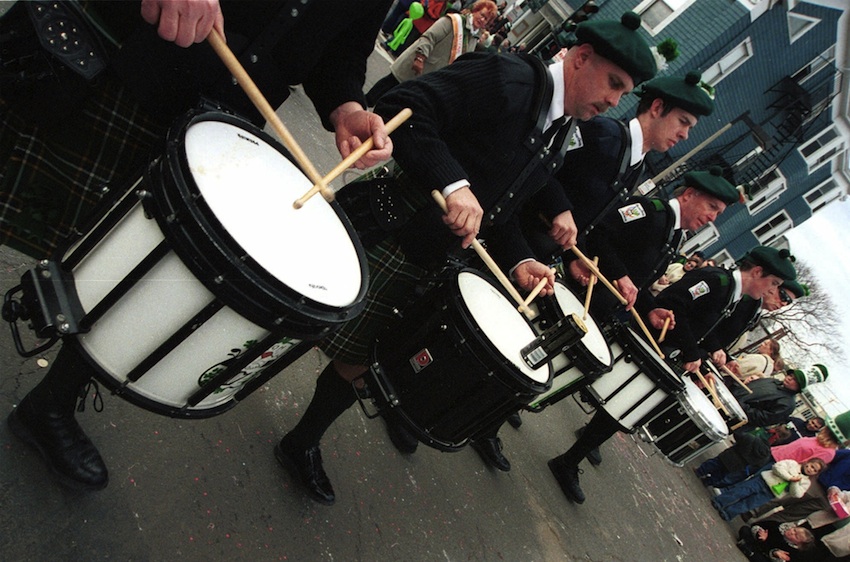Boston Pride Announces It Will March in the St. Patrick’s Day Parade

Associated Press
For Boston’s St. Patrick’s Day parade, after decades of stagnation, change on the issue of LGBT rights seems to be coming fast and furious. Boston Pride, an organization celebrating the LGBT community, announced Friday that the Allied War Veterans Council, which organizes the parade, has approved the group’s application to march this year.
Just months ago, after a decades-long standoff, parade organizers announced they would allow OUTVETS, a group of LGBT veterans, to march. The parade organizers had won a Supreme Court case in 1995 giving them the right to exclude LGBT groups from their event. In the decades since, they hadn’t approved any applications from groups identifying themselves as LGBT-affiliated. Just days ago, several Boston politicians, who had typically boycotted the parade to protest its exclusion of LGBT groups, announced they would be marching.
Today’s announcement that Boston Pride will be added to the parade means that the sudden appearance of groups marching under an LGBT banner won’t be limited to a single representative group that focuses on its veteran identity. When parade organizers approved the OUTVETS application, they tried to emphasize that the group didn’t have “a political or social agenda” but merely celebrated veterans.
“We’re looking at [OUTVETS] as veterans. They came to us as veterans and said we have no political or social agenda,” parade organizer Brian Mahoney recently told the Boston Globe. You might have read that as a half-hearted embrace of the LGBT cause. Boston Pride, meanwhile, has a definite “social agenda,” if you want to call it that, in that it’s an organization committed to celebrating LGBT identities. It puts together the annual gay pride parade in Boston.
“We are looking forward to celebrating Boston’s diversity, our veterans and the Irish heritage of so many members of our community by marching in the St. Patrick’s Day parade,” said Sylvain Bruni, president of Boston Pride in the group’s announcement.
Back in 1992, a lower court decision forced the parade organizers to allow a gay group to march in the annual parade. The group was met with jeers, bigoted signs, and thrown objects. Twenty-three years later, with LGBT groups finally making their return, the only piece of progress left is to see how Southie crowds greet the new addition to their tradition.

